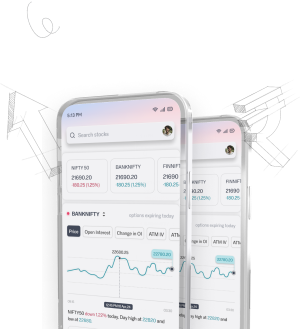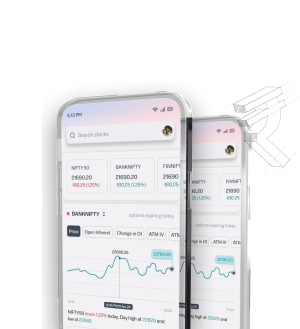Crude Oil Trading Timings in India
Commodity trading means trading platform where a diverse range of raw materials or primary products, including metals, energy resources, and agricultural produce, are exchanged. It establishes a marketplace where participants can buy and sell commodities, enabling the determination of fair market prices through the interplay of supply and demand dynamics.
Crude oil is the world’s primary energy source or say the backbone of transportation as well as electricity generation, which powers almost every aspect of our lives and crude oil is considered as one of the top commodities to trade in India as it has high global demand. The rise and fall of crude oil prices have wide-ranging implications around the world. Due to which traders' crude oil is a popular option in commodity markets across the board. India and China are the biggest consumers of crude oil all over the world. Just like there is a timing for trading in the Indian stock market, timing is defined for commodity trading as well and here we will discuss crude oil trading time.
Crude Oil Trading Time in India.
MCX crude oil trading time in India is as follows: Opening Time: 9:00 AM (this is when trading begins) & Closing Time: 11:30 PM (this is when trading concludes), further, the trading sessions on MCX are divided as below:
- Morning Session: 9:00 AM to 5:00 PM
- Evening Session: 5:00 PM to 11:30 PM/11:55 PM (depending on US daylight saving time)
During daylight saving (DST), which typically starts in March and ends in November, clocks are set forward by one hour. Thus, the closing time of the evening session extends to 11:55 PM. The evening session closes at 11:30 PM when DST is not in effect.
When Indian markets overlap with international markets, especially the European and American markets, trading volumes usually increase. This overlap typically happens in the evening session, providing better liquidity and more trading opportunities.
Why Are Crude Oil Trading Timings Important?
Understanding Crude Oil trading hours is crucial for you as a trader. It enables you to know when you can actively participate in the market, facilitating timely buy and sell decisions. Missing these hours could mean waiting until the market reopens, potentially causing you to miss out on trading opportunities and price movements & volatility.
Crude Oil Trading Sessions
Crude oil trading hours are typically longer than stock market hours in that you can usually trade oil almost 24 hours a day, five days a week. In any case, it will still depend on the type of crude oil. Generally, most traders want to trade oil when the markets are most active. Here's some insight into trading sessions from around the world:
-
Asian trading hours: This session often sees lower trading volumes and can be less volatile. It includes markets in countries like Japan, China, and Singapore.
-
European trading hours: Known to experience increased activity and volatility, which includes London, a major hub for crude oil trading.
-
U.S. trading hours: This session features the New York Mercantile Exchange (NYMEX). It often sees the highest trading volumes and significant price movements.
The overlap of the European and U.S. sessions (around 8:00 AM to 12:00 PM EST) is often considered the best time to trade crude oil. This overlap also combines the trading activities of these two major markets.
Best Time to Trade Crude Oil in India
The best time to trade in the commodity market is early trading hours. They usually have the most favourable conditions. High liquidity and trading volumes make it ideal for traders to execute trades. It is suitable for both taking on new positions and closing the existing ones.
Different timing impacts the trading strategies of the trader, here we will discuss the best time for trading.
-
Overlapping Trading Sessions: Different markets overlap each other like an overlap between Asian and European trading hours. This time is best as during this time there is an increase in trading activities and it leads to profitable trades.
-
Opening Hours of Morning Session: Trading during the first few hours after the market opens often provides a higher liquidity. High trading volumes during this time allow for quicker execution of trades and better management of positions.
-
Economic Releases Hours: Economic data releases influence commodity prices, such as the non-farm payroll report, GDP numbers, and interest rate announcements. Trading during the release of these reports can offer traders an opportunity to capitalize on sudden price movements.
Optimal crude oil trading time in India
The best time for trading crude oil is when it aligns with the overlapping sessions of major financial markets globally. In this case, you can follow the market timings of MCX or other Indian commodity exchanges and observe when the timings overlap with global market opening/closing hours.
Factors Affecting Crude Oil Trading Timings
List of the factors affecting crude oil trading timing are as follows:
Global Supply and Demand
One of the primary factors affecting Commodity Market Timings is the global supply and demand of the commodity being traded. For example, increased demand for crude oil due to a sudden geopolitical event may lead to extended trading hours to accommodate the increased demand.
Market Regulations
Market regulations are another crucial factor affecting Commodity Market Timings. Market regulators set trading hours and schedules for various commodities. These regulations ensure that trading fairly conducts and transparently and that all traders have equal market access.
Time zone Differences
Commodity markets are global, meaning time zone differences also play a crucial role in determining trading hours. Different countries and regions have additional working hours, which can impact the timings of commodity market trading sessions.
Economic and Political Events
Economic and political events can also significantly impact Commodity Market Timings. For example, a change in government policy or a natural disaster in a significant commodity-producing region can lead to increased volatility and extended trading hours.
Seasonal Demand
The demand for certain commodities may be seasonal, leading to changes in their trading hours. For example, the need for agricultural commodities may be higher during the planting and harvesting seasons, leading to extended trading hours.
How to Stay Updated on Crude Oil Trading Timings
Traders can stay updated on crude oil trading timing by using tools like economics calendars and MCX market updates. Also, traders can subscribe to Sahi for real-time updates on crude oil trading time and market trends.
To deal in commodity markets, traders and investors must be aware of the trading timings. Having knowledge about normal trading hours and extended trading sessions allows market players to take advantage of opportunities, control risks, and make well-informed choices. But it’s important to keep in mind that the trading hours mentioned above are flexible and might alter based on certain exchanges and local holidays. It is also important to use reliable tools and market analysis for success.
Disclaimer
The content provided is for educational purposes only and does not constitute financial advice. For full details, refer to the disclaimer document.




